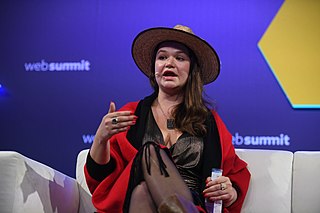A Quote by Fabrizio Moreira
Microsoft, Disney, Ford, Facebook, and a hundreds and thousands of other companies that affect us daily all began life as baby companies, aka start-ups.
Related Quotes
One thing we're going to do is talk just about that: Obamacare, jobs. Our jobs are being taken away from us. Companies, as we speak, are signing documents with Mexico and other places to move. Our jobs be being... Look at Ford two weeks ago. Ford Motor. They're gonna make all of their smaller cars in Mexico. They're gonna move everything outta here. And so many... I mean, Carrier air-conditioners. I talk about all these companies. There are hundreds of companies. They're moving out to Mexico and other countries.
Whether it's Facebook or Google or the other companies, that basic principle that users should be able to see and control information about them that they themselves have revealed to the companies is not baked into how the companies work. But it's bigger than privacy. Privacy is about what you're willing to reveal about yourself.
People believe that companies have always had strategies, dating back at least to likes of Henry Ford or Andrew Carnegie, maybe to the contractors who built the Pyramids. As it turns out, it was only in the 1960s and 1970s that a new breed of "business intellectuals" began to develop the intellectual framework that allowed companies to look at the three "C's" of any good strategy - namely their costs, customers, and competitors - in an integrated way.
When this crisis began, crucial decisions about what would happen to some of the world's biggest companies - companies employing tens of thousands of people and holding trillions of dollars in assets - took place in hurried discussions in the middle of the night. We should not be forced to choose between allowing a company to fall into a rapid and chaotic dissolution or forcing taxpayers to foot the bill.


































